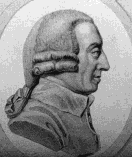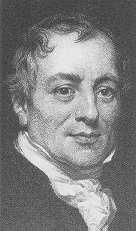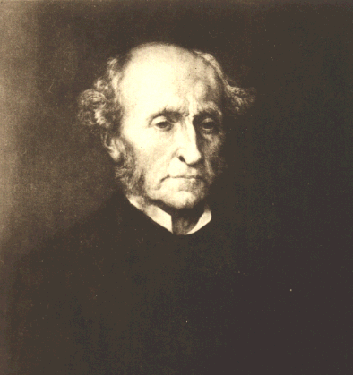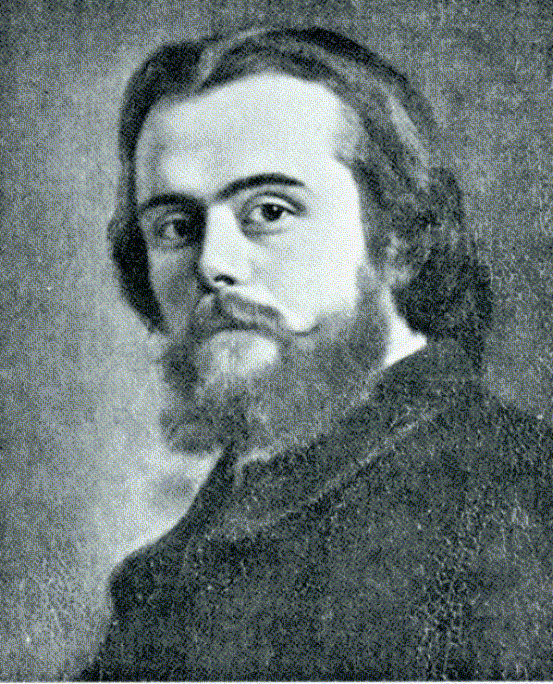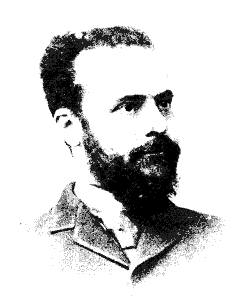
Nobel Prizes 1969 - 2003
In 2002 the Prize was awarded to the experimental
economist Vernon L. Smith!
select a year
¦ 1969 ¦ 1970
¦ 1971 ¦ 1972 ¦
1973 ¦ 1974 ¦ 1975
¦ 1976 ¦ 1977 ¦
1978 ¦ 1979 ¦ 1980
¦ 1981 ¦ 1982 ¦
1983 ¦ 1984 ¦ 1985
¦ 1986 ¦ 1987 ¦
1988 ¦ 1989 ¦ 1990
¦ 1991 ¦ 1992 ¦
1993 ¦ 1994 ¦ 1995
¦ 1996 ¦ 1997 ¦
1998 ¦ 1999 ¦ 2000
¦ 2001 ¦ 2002 ¦
2003 ¦ |
| 1969 |
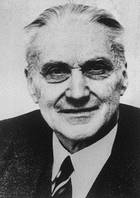 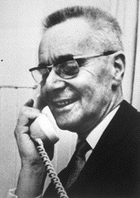
Ragnar Frisch
Jan Tinbergen |
|
"For having developed and applied dynamic
models for the analysis of economic processes." |
| 1970 |
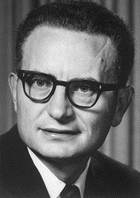
Paul Samuelson |
| "For the scientific work through
which he has developed static and dynamic economic theory and actively
contributed to raising the level of analysis in economic science." |
| 1971 |
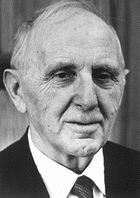
Simon Kuznets |
| "For his empirically founded
interpretation of economic growth which has led to new and deepened insight
into the economic and social structure and process of development." |
| 1972 |
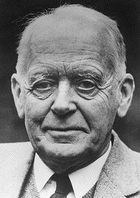 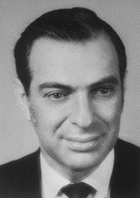
John Hicks
Kenneth Arrow |
| "For their pioneering contributions
to general economic equilibrium theory and welfare theory." |
| 1973 |
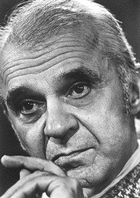
Wassily Leontief |
| "For the development of the
input-output method and for its application to important economic problems." |
| 1974 |
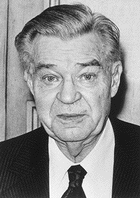 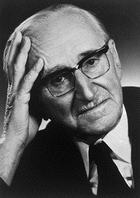
Gunnar Myrdal Friederich
v. Hayek |
| "For their pioneering work in
the theory of money and economic fluctuations and for their penetrating
analysis of the interdependence of economic, social, and institutional
phenomena." |
| 1975 |
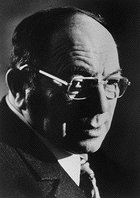 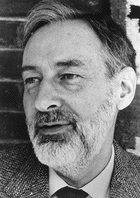
Leonid Kantovarich Tjalling Koopmans |
| "For their contributions to
the theory of the optimum allocation of resources." |
| 1976 |
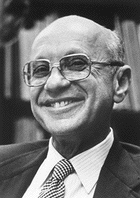
Milton Friedman |
| "For his achievements in the
field of consumption analysis, monetary history and theory and for his
demonstration of the complexity of stabilisation policy." |
| 1977 |
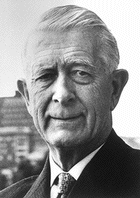 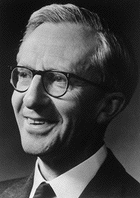
Bertil Ohlin
James Meade |
| "For their pathbreaking contribution
to the theory of international trade and international capital movements." |
| 1978 |
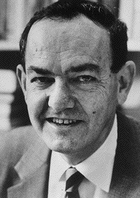
Herbert Simon |
| "For his pioneering research
into the decision making process within economic organisations." |
| 1979 |
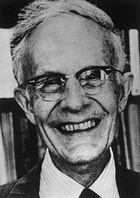 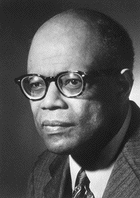
Theodore Schultz
Arthur Lewis |
| "For their pioneering research
into economic development, with particular consideration of the problems
of developing countries." |
| 1980 |
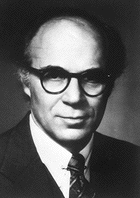
Lawrence Klein |
| "For the creation of econometric
models and their application to the analysis of economic fluctuations and
economic policies." |
| 1981 |
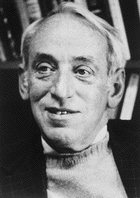
James Tobin |
| "For his analysis of financial
markets and their relations to expenditure decisions, employment, production
and prices." |
| 1982 |
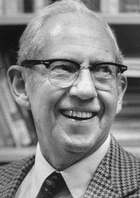
George Stigler |
| "For his seminal studies of
industrial structure, functioning of markets and causes and effects of
public regulation." |
| 1983 |
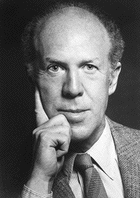
Gerard Debreu |
| "For having incorporated new
analytic methods into economic theory and for his rigorous reformulation
of the theory of general equilibrium." |
| 1984 |
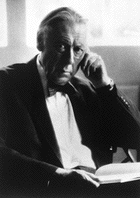
Richard Stone |
| "For having made fundamental
contributions to the development of systems of national accounts and hence
greatly improved the basis for empirical economic analysis." |
| 1985 |
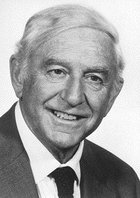
Franco Modigliani |
| "For his pioneering analysis
of savings and financial markets." |
| 1986 |
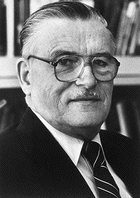
James Buchanan |
| "For his development of the
contractual and constitutional bases of the theory of economic and political
decision making." |
| 1987 |
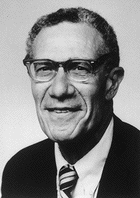
Robert Solow |
| "For his contributions to the
theory of economic growth." |
| 1988 |
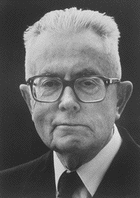
Maurice Allais |
| "For his pioneering contributions
to the theory of markets and efficient utilisation of resources." |
| 1989 |
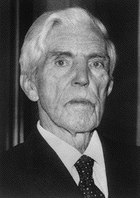
Trygve Haavelmo |
| "For his clarification of the
probability theory foundation of econometrics and his analysis of simultaneous
economic structures." |
| 1990 |
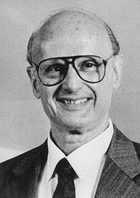 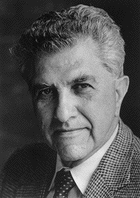
Harry Markowitz Merton
Miller |
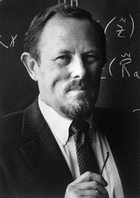
William Sharpe |
| "For their pioneering work in
the theory of financial economics" |
| 1991 |
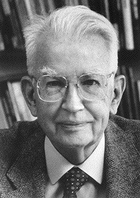
Ronald Coase |
| "For his discovery and clarification
of the significance of transaction costs and property rights for the traditional
structure and functioning of the economy." |
| 1992 |
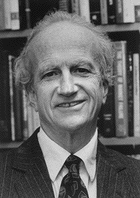
Gary Becker |
| "For having extended the domain
of microeconomic analysis to a wide range of human behaviour and interaction,
including non-market behaviour." |
| 1993 |
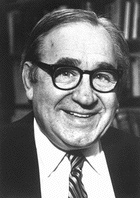 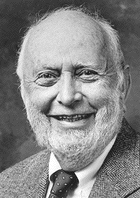
Robert Fogel
Douglass North |
| "For having renewed research
in economic history by applying economic theory and quantitative methods
to explain economic and institutional change." |
| 1994 |
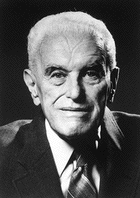 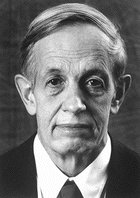
John Harsanyi
John Nash |
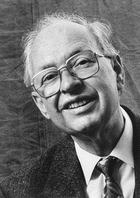
Reinhard Selten |
| "For their pioneering analysis
of equilibria in the theory of non-cooperative games." |
| 1995 |
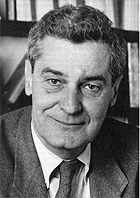
Robert Lucas |
| "For having developed and applied
the hypothesis of rational expectations, and thereby having transformed
macroeconomic analysis and deepened our understanding of economic policy." |
| 1996 |
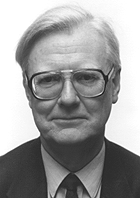 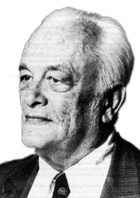
James Mirrlees
William Vickrey |
| "For their fundamental contributions
to the economic theory of incentives under asymmetric information." |
| 1997 |
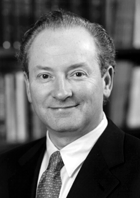 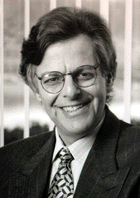
Robert C. Merton
Myron S. Scholes |
| "For a new method to determine
the value of derivatives" |
| 1998 |
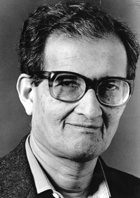
Amartya Sen |
| "For his contributions to welfare
economics." |
| 1999 |
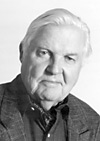
Robert A. Mundell |
| "For his analysis of monetary
and fiscal policy under different exchange rate regimes and his analysis
of optimum currency areas." |
| 2000 |
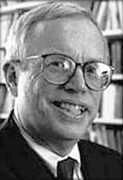 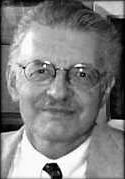
James Heckman Daniel McFadden |
| "To James Heckman for his development
of theory and methods for analyzing selective samples and to Daniel McFadden
for his development of theory and methods for analyzing discrete choice." |
|
| 2001 |
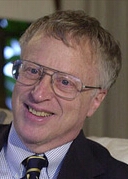 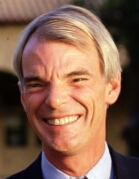
George A. Akerlof A. Michael Spence |
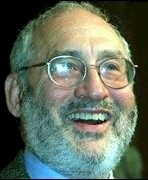
Joseph E. Stiglitz |
| "For their analyses of markets
with asymmetric information." |
| 2002 |
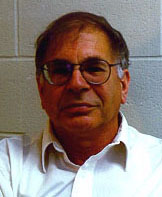 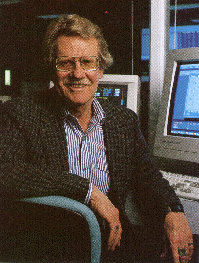
Daniel
Kahneman Vernon
L. Smith |
| "To Kahneman for having
integrated insights from psychological research into economic science,
especially concerning human judgment and decision-making under uncertainty
and to Smith for having established laboratory experiments as a
tool in empirical economic analysis, especially in the study of alternative
market mechanisms" |
|
|
| 2003 |
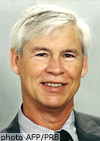 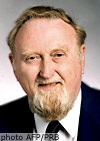
|
|
To Engle for methods of analyzing economic time
series with time-varying volatility (ARCH) and to Granger for methods
of analyzing economic time series with common trends (cointegration).
|
|
 |























































